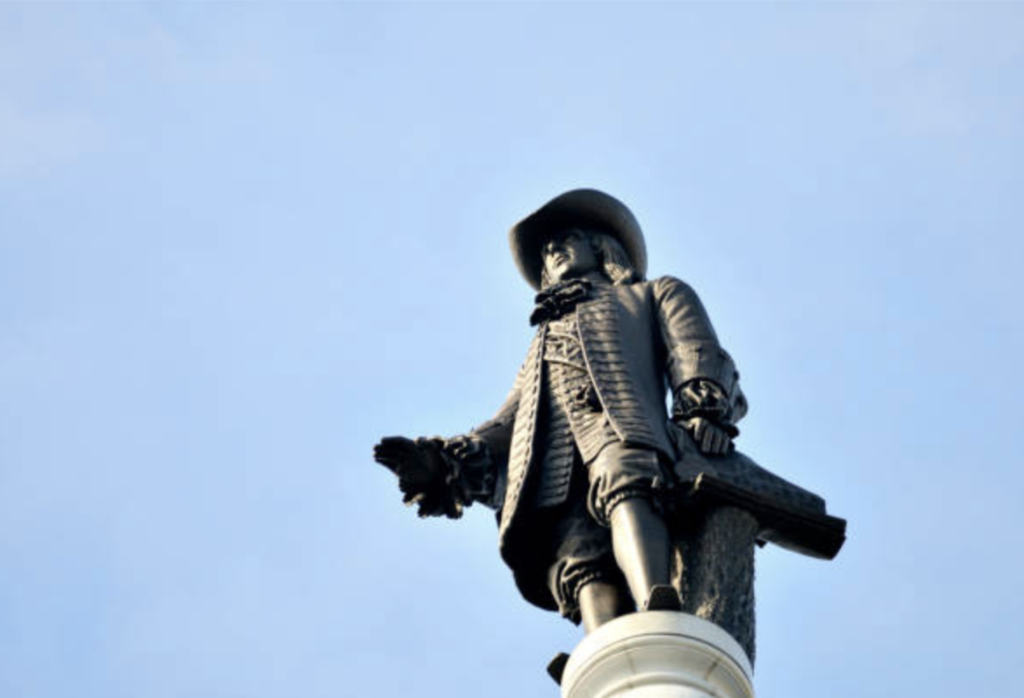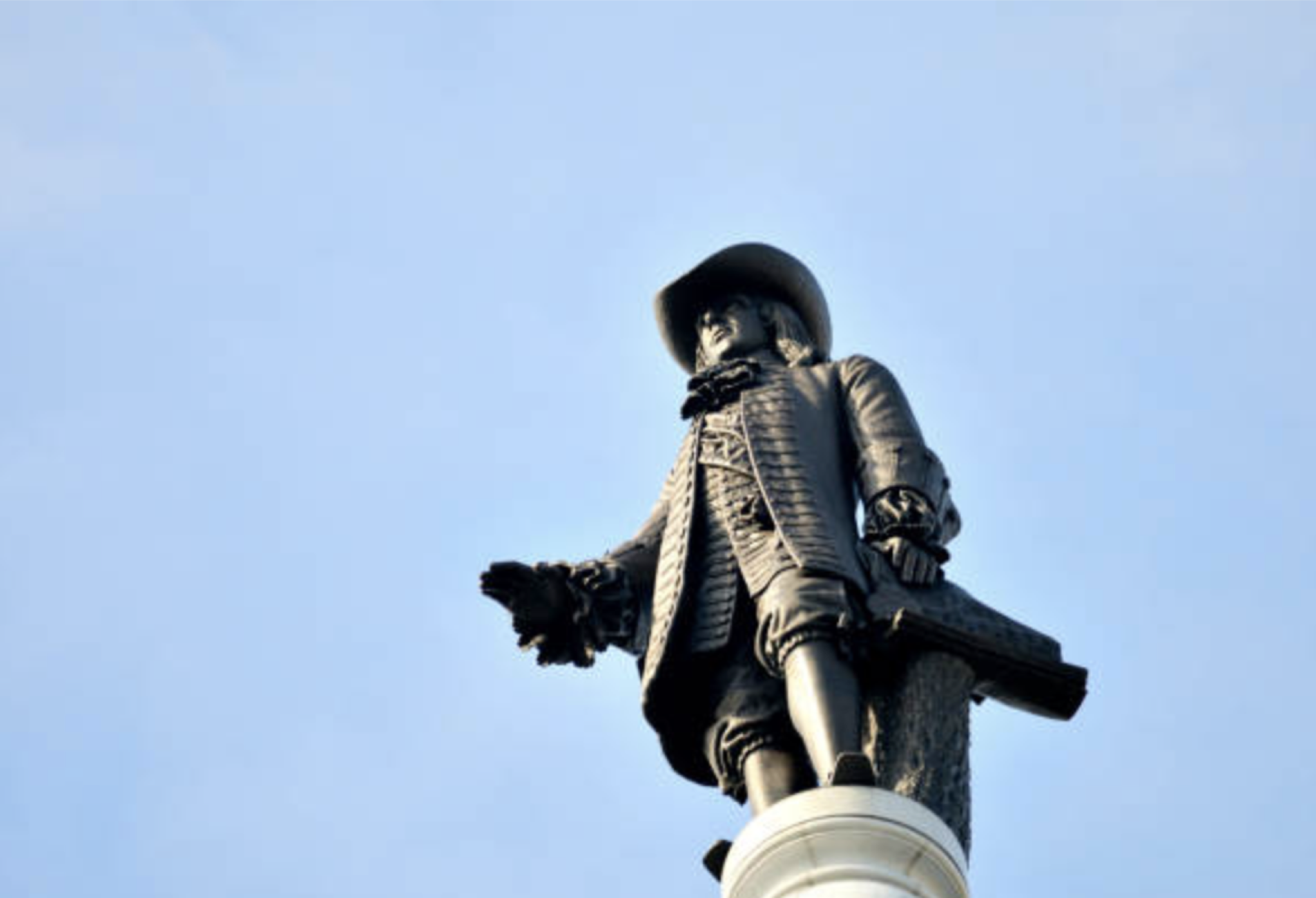William Penn, a notable English writer, religious thinker, and Quaker, left an indelible mark on American history by establishing the Province of Pennsylvania during the British colonial era. His upbringing, steeped in education and Quaker values, profoundly influenced his commitment to democracy and religious freedom.
In 1681, King Charles II granted Penn a substantial tract of land in North America. The land grant was largely to settle a debt owed to Penn’s father. However, it also provided a convenient way for Charles II to deal with the “Quaker Problem” in England and Northern Ireland. Originally proposing the name “New Wales,” Penn eventually suggested “Sylvania,” meaning “forest” or “woods” in Latin. However, King Charles II opted to honor Admiral Penn, William’s father, by naming the land “Pennsylvania,” much to Penn’s chagrin. Despite his initial embarrassment, Penn embraced the name and embarked on creating a colony embodying his principles of religious tolerance and fair governance.

Upon his arrival in Pennsylvania in 1682, Penn swiftly cultivated harmonious relations with the Lenape Native Americans, negotiating equitable treaties that fostered peaceful coexistence. His Quaker-inspired government prioritized fair trials, religious freedom, and democratic elections, attracting settlers seeking a more just society.
Penn’s vision transcended Pennsylvania, as he advocated for the unification of all English colonies in America. His democratic principles, outlined in the Frame of Government of Pennsylvania, profoundly influenced the framers of the U.S. Constitution, shaping the nation’s governance for centuries to come.
William’s son, Thomas Penn, played a pivotal role in the colony’s history. With his brothers John and Richard, he inherited proprietorship of the colony upon William’s death in 1718. Thomas was its chief proprietor 1746 – 1775. The Penn family was deeply in debt, and the brothers were determined to squeeze as much income from the colony as possible. Thomas was the family’s representative in the colony. Thomas oversaw significant expansions of Pennsylvania’s territory, including the controversial Walking Purchase of 1737, which involved claiming title to and selling land extending as far west as a man could walk in a day and a half along the Lehigh River prior to the Lenape vacating the still-inhabited area.
In “The History of Silver Lake as Told Through Its Deeds,” a land grant by Thomas Penn issued in 1741 for lands west of the Susquehanna River, then largely a wilderness with few European settlers, marked the earliest documentation of land ownership encompassing Silver Lake.
William Penn’s enduring legacy is evident in Pennsylvania’s foundational principles of democracy and religious freedom. His fair treatment of Native Americans and progressive governance set a precedent for future colonies and continues to influence the democratic ideals of the United States. However, William Penn’s sons abandoned their father’s principled practices, and the sons’ legacies were far from noble.







